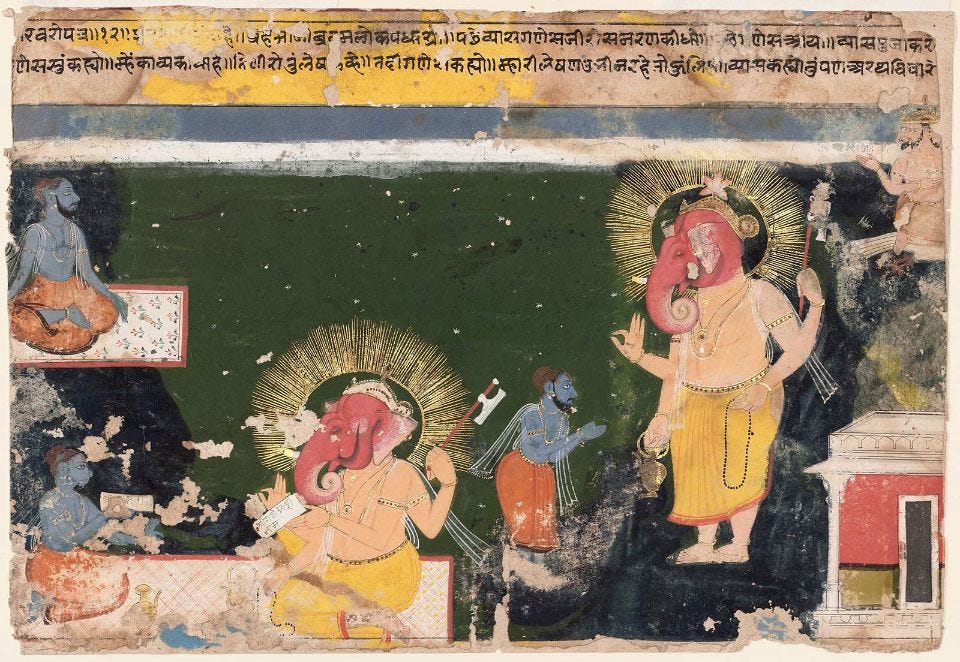Jayary Newsletter # 64

Identity Crisis
We are surrounded by our identity like a second skin. Signatures, photographs, passwords, ID cards, biometrics, phone numbers, email addresses, the list of identifying characteristics is endless. When I send an email, I type it out and then wait as a system of identities verifies the bonafides of the message before it reaches my recipient. My email ID and my correspondent's email ID are merely the endpoints in this vast chain of authentication and identification, which also includes IP addresses, encryption keys, server IDs and other electronic signatures.
What about a time when identities were rare and fickle? What did people do when their message had only one intended recipient? Of course, that happens today as well: a salary check also has only one intended recipient; the president's intelligence briefing has only one recipient, but that's different from the ancient situation in one crucial respect: we know who the intended recipient is, we just want to make sure no one else has access to my secrets. Damayanti has a different problem: she doesn't know who Nala is, even if he's standing right in front of her. Yet, she has to craft a message that he and he alone can decipher.
Like many other messages, this one is a story. Of a woman asking her absent husband why he left her. Why did he abandon the one person who kept her faith in him? What atrocity did she commit in this lifetime or the previous one that she had to suffer its consequences this time around.
Of course, everyone can understand this story, but only Nala is moved to tears by it and tells the visiting Brahmin to convey his response: that the suffering wife should be patient for a little while longer and forgive her husband despite all his failings. Haven't we heard that message a thousand times. But Nala means it.
Being Someone Else
It's hard for us to truly pretend to be someone other than who we are; perhaps a hardened criminal or a spy has access to multiple identities and the desire to use them. Even that might vanish in a few decades when biometric identification becomes fool proof. Besides, who wants to be someone else?
Do you think Hillary Clinton would be Hillary if she could wear a different brand of make-up and pretend to be a Christian housewife in Idaho? We are all building personal brands now and for that to be successful, it's absolutely crucial that our identities match across contexts and circumstances.
Am I being too harsh? It's relatively easy to create a couple of new secret identities online and it might even be desirable if you want to troll or stalk someone. Perhaps the identity game has shifted mediums from the physical to the digital.
But despite all beliefs to the contrary, the digital is not the physical. It's not as real. It's not as diverse. It's not as surprising. In fact, it's a highly controlled environment. Anonymity in the digital world is better than no anonymity whatsoever, but it's nowhere near as fulfilling as anonymity and privacy in the physical world.
The Jaya thrives in fluid identities: multiple identities, mistaken identities, you name it, the Jaya has it. Karna, Arjuna, Shikhandi, Nala: each one of them spends time being a different person. I wonder if we should institute an identity holiday, say a couple of weeks every year when we can shed our current skin and become someone else.
Luck and Genius
A functioning system rewards competence. A well trained doctor with a good bedside manner will always find a ready clientele. She doesn't have to be spectacularly good at her job; as long as she's accurate at diagnosing common ailments and delivers her judgments with compassion, there will be a line outside her door.
Competence is useless when you're outside an existing system and need a way in or want to create a new system of your own. Merely competent mathematicians wouldn't have made their way from Kumbakonam to Cambridge. The outsider needs to be a mahatma and even then he needs a dose of luck that eludes the ordinary genius.
Fortunately, Nala - as Bahuka, the charioteer - has both. He's an exceptionally skilled charioteer; a horse whisperer who can make them run faster than anyone else. That's like being a crack machine learning engineer today, someone who can make computers yield insights invisible to the rest of us. In fact, he's so good that his old charioteer Varshneya suspects that Bahuka might really be Nala in disguise (side note: if Nala was so good with horses, why did he need a charioteer?) .
Rituparna trusts Nala to get him into Vidarbha in a day, for that's the deadline imposed by Damayanti for her faux swayamvara. The dice are being loaded in Nala's favour now: knowing that Nala is a better warrior than any of his rivals, Damayanti poses a challenge that she knows will bring Nala out of the woodwork. It reminds me of Penelope and Odysseus at the end of another epic.
Incidentally, the Jaya doesn't balk at Damayanti attempt at remarriage. Women in the Jaya had more autonomy than their successors.


